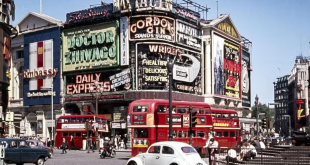Everything that happens between now and June 23rd will be blamed on Brexit. In the unlikely event that Britain has to implement a hosepipe ban, it will because uncertainty about Brexit has caused rainclouds to hold back on precipitation until the outcome of the referendum is clear. In the event that house prices increase, it will be the result of people rushing to buy ahead of the Brexit vote. If high street shops sell more umbrellas, that will be because consumers fear the Biblical downpours that are inevitable if we are so foolish as to vote to leave. In short, anything that you can think of can be spun to make it appear to be to do with Brexit.
It is in this light that we should be particularly concerned about the way bankers, economists and media pundits are spinning Britain’s current economic woes. For example, news that the Bank of England has contacted banks to prepare them for a cut in interest rates has been blamed on uncertainty over Brexit:
“David Cumming, head of UK equities at Standard Life Investments, tells Today the rationale for a rate cut is that there is a chance the UK could experience a recession in the second half of the year if the country votes to leave the European Union.” (BBC Radio4 Today 9.5.2016)
Just as Labour attempted (and failed) to hide their own culpability in leaving the UK economy vulnerable to the collapse in the US housing market and the ensuing banking collapse in 2008, so Osborne and Cameron would like nothing more than to blame the coming recession on Brexit rather than have to admit that, just like Brown and Darling before them, they “failed to mend the roof when the sun was shining”.
The truth is that Osborne’s policies have failed to bring about a recovery. To give just one example of this – the average graduate salary in 2008 was £24,000; eight years on, the average graduate salary is still £24,000. While the UK economy has been adding jobs, the increase has been in low-paid, low-skilled employment at the expense of the high-skilled, high-paid jobs that are essential to a sustained recovery. Far too much of UK growth has been in the service sector; and far too much of our spending has been on imported consumer goods that has left the UK with the largest current account (balance of payments) deficit in our history. None of the infrastructure spending promised by Osborne in 2010 – Heathrow expansion, High Speed II, Hinkley Point C, etc. – has actually been built… or even started. And bear in mind that this has occurred against the backdrop of low energy prices and low borrowing costs.
Writing in the Telegraph under the headline British economy on a knife edge as Brexit vote looms, Jeremy Warner nails this:
“Brexit is clearly not the only, or even the main, factor at work here. There’s something deeper going on; the global recovery, if it could ever be called that, is running out of steam almost everywhere. Even in the US, there is an evident loss of momentum, which is odd for a presidential election year, leading to growing doubts about whether the Federal Reserve can push through another interest rate rise in June as planned.”
History teaches us that we get a recession every 6 to 9 years. So the current “recovery” is likely to be petering out anyway. Fears about Brexit will no doubt add to this; and an actual exit is bound to result in huge disruption. Nevertheless, the true test of a Chancellor is not that he or she is able to defy history and avoid a crisis. The true test is whether he or she has created sufficient economic resilience to make it through to the other side. In this, George Osborne is about to be assessed… I believe he will be found wanting.




